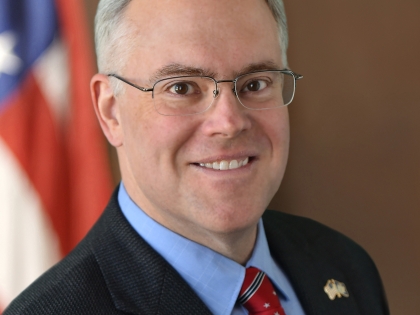
Senate approves aquatic invasive legislation
June 9, 2021

The State Senate today approved with unanimous support legislation that aims to strengthen and make permanent ongoing efforts to prevent the introduction and spread of aquatic invasive species in Adirondack waterways. Senator Dan Stec is a cosponsor of the legislation, which would replace a law that expired at the end of May.
“I was confident we could find agreement in both houses to make this important law permanent,” said Stec. “I greatly appreciate the work of Senator Todd Kaminsky and his office. Though it took a little longer than expected, passage will happen this week which is great news for our waterways.”
The legislation (S7010C) builds on the “clean, drain and dry” law that was adopted in 2014 to require that boats be inspected for aquatic invasive species, such as zebra mussels and eurasian watermilfoil, before being launched in a waterbody.
The Department of Environmental Conservation (DEC) is authorized to set up boat inspection stations throughout the Adirondack Park and within a ten-mile radius of the park’s boundary. Once inspected, a certificate in the form of a tamperproof tag may be issued by the DEC to the boat operator. DEC will be required to maintain on its website a list of all the boat washing inspection stations, including operating hours.
Boaters may also self-certify following a DEC process to clean, drain and dry their watercraft.
Educational and outreach efforts by the DEC are also required and data collected through the inspections will help identify additional steps to keep invasives out of Adirondack waterways. Funding to implement the law will be made available through the Office of Parks, Recreation and Historic Preservation.
The legislation does not include the sunset provision and would take effect immediately if signed by Governor Andrew Cuomo.
“The Adirondack Watershed Institute (AWI) has been at the forefront on this issue,” said Stec. “I appreciate their tremendous research and guidance and the support of many others, including numerous environmental groups. There’s no question that prevention is the most cost-effective means of protecting our waterbodies. The better we do, the better the health of our waterways and that’s great for tourism and fishing.”
Assemblyman Billy Jones is the sponsor of companion legislation progressing through the State Assembly.
-30-